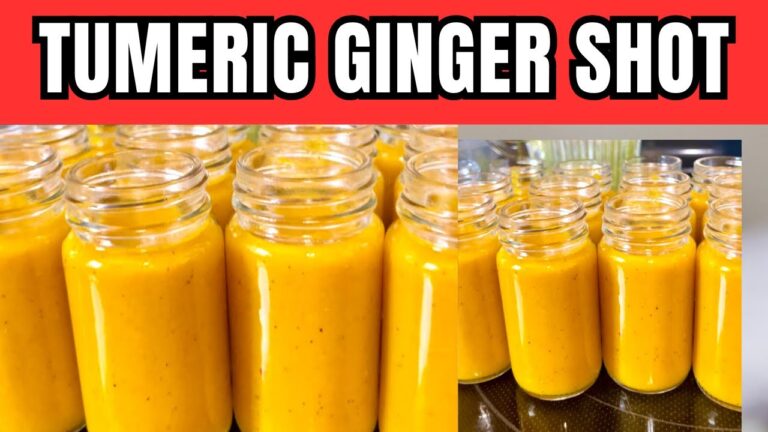Chiggers, along with lice, are some of our least favorite creatures. Imagine there was a tiny monster in the same family as scorpions and spiders. It was so tiny, in fact, that you could barely see it without a microscope. Yet, this tiny creature was capable of causing insanity-inducing itchy skin.
These creatures exist and while the name “chigger bites” are a misnomer, these horrific little creatures can certainly cause intense itching with their spit. Read on to find out what you can do to avoid or get rid of them. And the old nail polish trick won’t help!
What Are Chiggers?
Their scientific name is Trombiculidae or Trombiculid mites. You may hear them referred to as chiggers, harvest mites, mowers mites, harvest lice, red bugs, and a host of other names. They’re so tiny you almost can’t see them without a magnifying glass or microscope. Chiggers tend to congregate in shady areas with a lot of vegetation. You’ll find them in fresh-cut grass, tall weeds, and overgrown and wooded areas.
One female can lay hundreds of eggs. Once hatched, they all tend to stay in the same area. This is why you can encounter hundreds of chiggers in one general area and not find any just a few yards away. When fully grown, these tiny mites measure only 1/150th of an inch, making them very difficult to see or avoid. And did I mention their cousins with scorpions?
If you’ve ever had a run-in with these little guys, you’re well aware of the uncomfortable effects they can cause. Chiggers leave itchy welts that look like hives, sometimes called chigger bites. In reality though, they don’t bite at all.
Chigger Bites Are Not Bites at All…
The itchy welts left behind by these little red mites are commonly called chigger bites. Technically it’s not a bug bite though.
A chigger larva can attach itself to a human host. They latch on to the skin but they’re so small you won’t feel them. Contrary to many assumptions, they don’t lay eggs in the skin or even bite it.
Instead, chiggers drill microscopic holes into skin cells with their mouth. They then secrete specialized salivary enzymes (aka- spit) onto the skin. See… not technically a bite (I know, I know, too-may-toe, to-mah-toe).
These enzymes cause the skin to break down. So the chiggers can essentially slurp up the decaying skin through a straw-like tube called a stylostome. Disgusted? I was too.
Symptoms of Chigger Bites
Many insects and plants can cause an itchy skin rash so it can be tough to know if it is chiggers or something else. Here’s what to look for to know if you’ve been attacked by these pesky larvae:
Is it a Different Bug?
The above symptoms indicate chigger bites, but there are a few other bugs that can cause similar symptoms. Here’s how to tell different bug bites apart:
Chigger Bites and Disease
My first thoughts were that chiggers aren’t a big deal, just a pain to deal with. It turns out they can transmit certain diseases though.
Scrub typhus is caused by bacteria through bites from infected chiggers. Common symptoms include fever and chills, headache, body aches, and muscle pain. Sometimes the person will get a rash or enlarged lymph nodes. This is most common in rural areas in places like Southeast Asia, Japan, and northern Australia.
More recently scrub typhus has spread to South America and could be in other new areas. Since the symptoms mimic other diseases it can be difficult to diagnose. It’s likely not a problem on your regular camping trip, but it’s something to watch out for if you’re traveling.
Our Experience With Chiggers
I vaguely remember getting chiggers a few times as a kid. But I had an experience not too long ago that trumped any of my past experiences.
On our family camping trip, all of our kids were exposed to chiggers. They didn’t notice them the first day, but by the next morning, their legs were covered in itchy red welts.
The itching was so bad it kept the kids up at night. I was afraid they would end up with scars all over their legs or a skin infection from scratching.
Since I hoped to eventually sleep again, I started researching ways to get rid of these itchy bumps. I even called a local entomologist for some professional recommendations.
Remedies That Don’t Work
Thanks to my six more-than-willing test subjects, I discovered natural remedies that work for chigger bites (and many that don’t). But first, here’s what didn’t work:
Treat Chigger Bites Naturally
If you’ve ever experienced the awful itching caused by chigger larvae, you know that you’ll do almost anything to make it stop. Thanks to our recent chigger infestation, we had plenty of opportunities to test natural remedies for the itching.
Healthcare providers often recommend over-the-counter antihistamines like Benadryl to stop the itching. Permethrin, an anti-parasite medication is another conventional treatment. Hydrocortisone and topical steroid creams can help reduce the swelling.
I’m not one to opt for conventional medications as a first line of treatment, especially when it comes to my kids! Here are the natural chigger bite remedies that worked for us.
1. A Hot Shower
The best way to stop chiggers is to get rid of them before they attach and start spitting on the skin. This avoids the itching completely. I think this is also the reason why my youngest and I were the least affected. It can take chiggers a few hours to find a place to latch onto the skin and start drilling. If you can remove them during this window, you can often avoid the problem completely.
Our family was exposed to chiggers on a camping trip. We were camping close to town, so when our two youngest kids got grumpy, I brought them home. I gave them both a bath and we slept in our own beds. I also showered in hot water that night. In the morning, all three of us all had only 1-2 bites each. The rest of the kids and their dad stayed overnight and had dozens of itchy bumps.
If you think you may have been exposed to chiggers, a hot shower within the first hour or so can help remove them from the skin. Obvious other steps like using soap and scrubbing the skin can help too.
2. Cold Water
I know, I know… I just said hot water can help. Cold compresses and cold showers though can help relieve the itching once it’s set in. The cold helps calm the inflammation and numb the area to reduce itching. I wouldn’t do this with very little ones though.
You can also rub an ice cube on the itchy bites for some relief.
3. Baking Soda Scrub
These work best shortly after exposure but can help even once the severe itching sets in. It’s also super simple. Make a paste of equal parts baking soda and water and rub it on the skin in the shower. Leave it on for a few seconds before showering off.
Fair warning- this will sting like crazy, but it really helps stop the itch and beats staying up all night itching.
4. Rub Salt in the Wound
Just like the baking soda solution, this will sting, but it helps. The traditional advice is to mix some salt into some vapor rub. I’d recommend using a natural or homemade vapor-rub salve instead to avoid the petroleum byproducts though.
The theory is that the menthol in the vapor-rub helps calm the itching and the salt helps neutralize the spit causing the itch.
Whatever the science, this seemed to work the best. I mixed some Real Salt into my pre-made vapor rub and it offered some relief for the kids.
5. Or Spray It On
A salt water and herbal tea spray also seemed to help. I made a strong chamomile tea and added a few tablespoons of natural salt. I kept this in a glass spray bottle in the fridge and it offered some cooling and calming relief for itching.
6. Castor Oil
This is an old remedy that the entomologist suggested. It seemed to work, though it wasn’t the most effective remedy we tried. If you have castor oil around it could be worth a try though. We dabbed small amounts on the bumps and it did offer some itching relief.
7. Diatomaceous Earth
I tried this remedy before I realized chigger bites aren’t actually chigger larvae embedded under the skin (as often claimed). Still, this worked remarkably well. My theory is that it does kill any remaining chiggers and dries out the bumps to reduce the itching.
I’m also now using this as a preventative measure. Diatomaceous earth has many uses and can kill many small pests naturally. I’ll be sprinkling it in our socks and on our boots next time we camp!
8. Natural Anti-Itch Cream
Many sources also recommend using Calamine lotion to calm the itch. I didn’t have this on hand but did have my homemade natural itch cream, which worked like a charm. Either of those should help calm the itch.
9. Cooling Aloe Vera
Mix 1/4 cup aloe vera (fresh or gel) and a drop of peppermint essential oil. Rub over the skin to soothe the itching. Lavender essential oil is a natural antihistamine that can also help.
10. Magnesium Baths
We found that all of my detox baths seemed to calm the itching, but a plain magnesium or Epsom salt bath worked best. Add 1 cup of Epsom salt or magnesium flakes to a warm bath. Don’t have those? Try just adding some baking soda instead of making the paste above.
How to Never Get Chigger Bites Again
All of that insatiable itching could be avoided by not getting chigger bites (spit) in the first place. My first gut reaction was to ban my children from camping and hiking until the first frost. Some research led to a more balanced solution. We’re taking these steps to avoid another run-in with chiggers:
When To See Your Doctor
Chigger bites usually go away on their own after two weeks, but there are a few things to watch out for. If you have any of the below issues, check in with your healthcare practitioner.
Ever had chigger bites? What natural remedies helped you the most? Leave a comment and share below!
This content was originally published here.




















